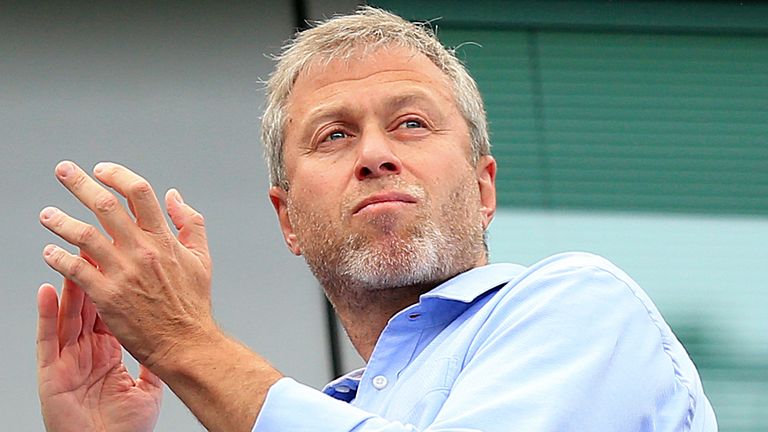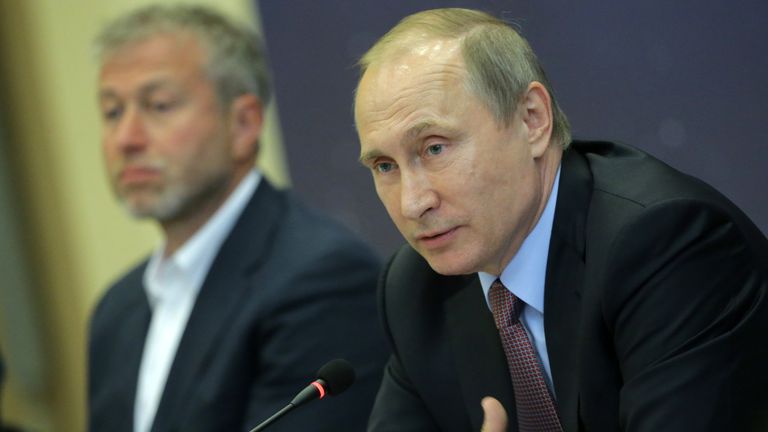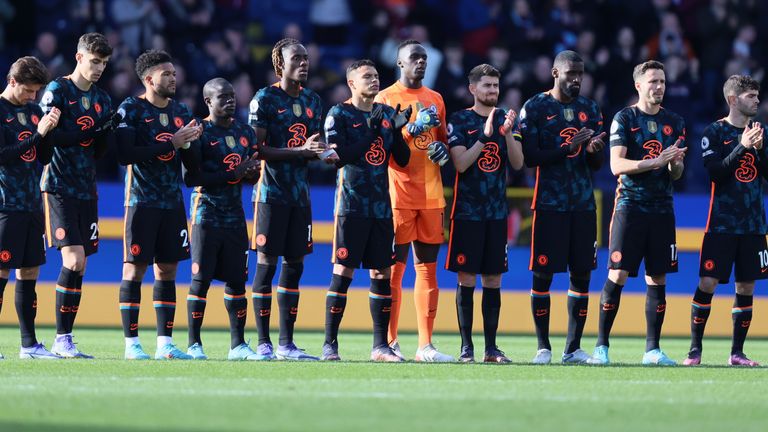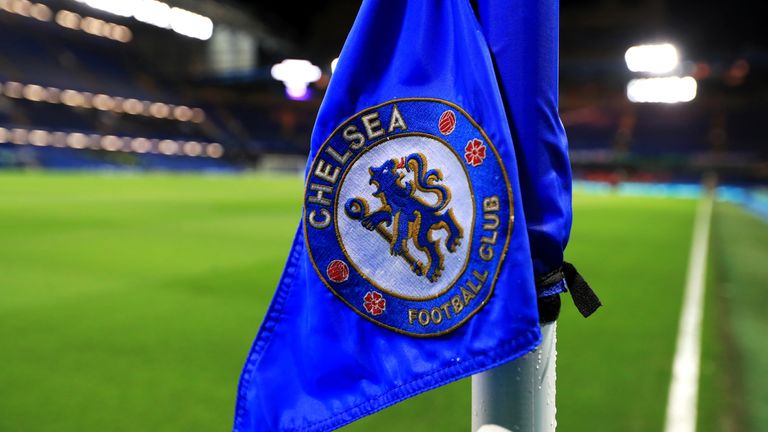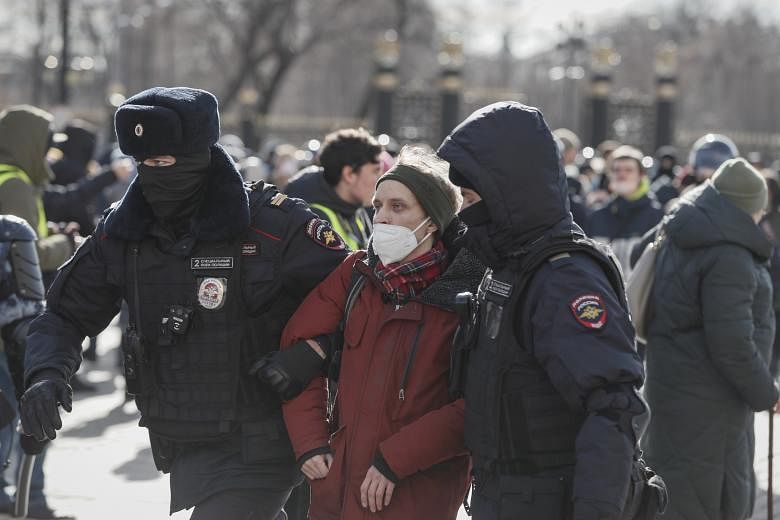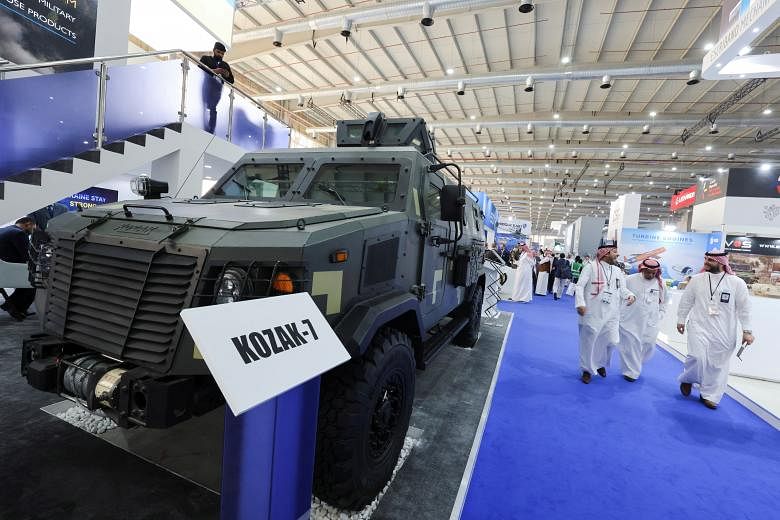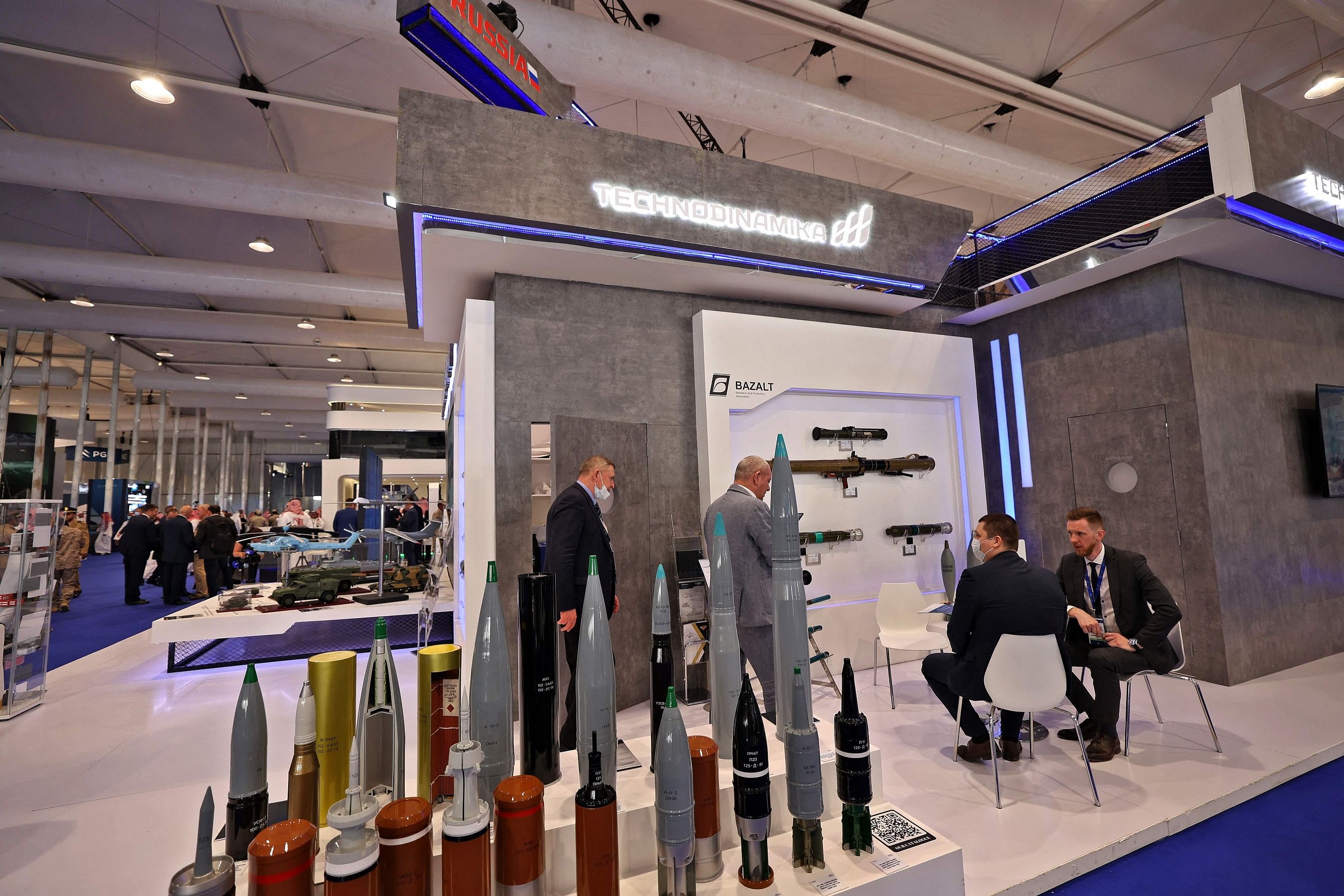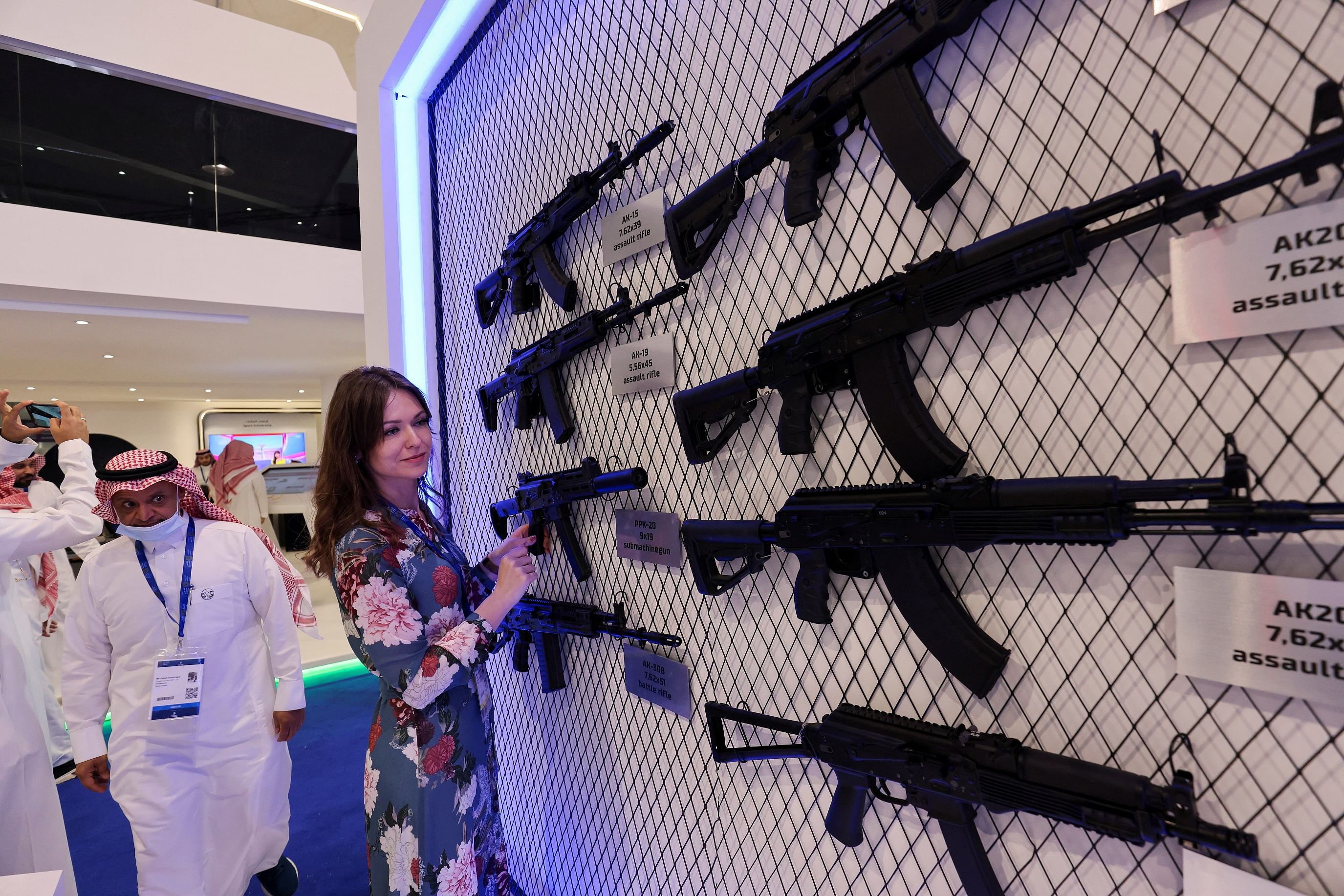Ukraine's Jewish ex-PM urges stronger Israeli response to Russia
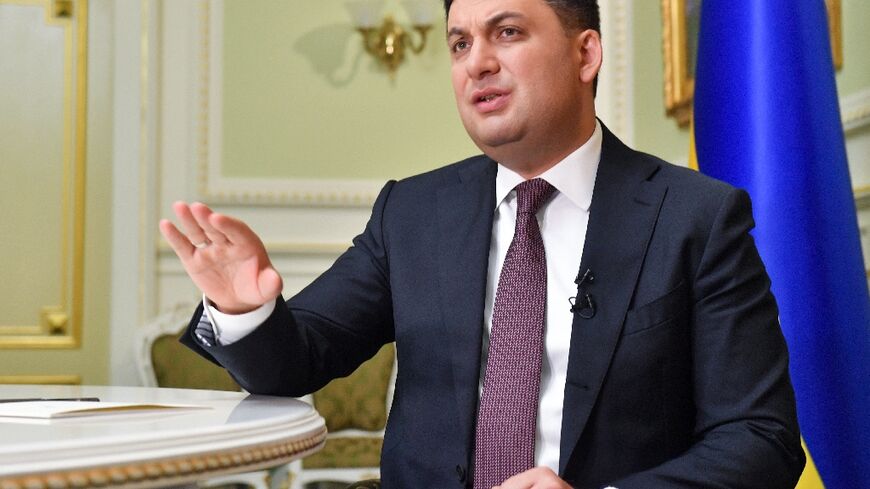
Then Ukrainian prime minister Volodymyr Groysman speaks to a journalist in May 2018
- Sergei SUPINSKY
by Gareth Browne
March 10, 2022 — Jerusalem (AFP)
Former Ukrainian premier Volodymyr Groysman, who lost much of his family in the Holocaust, compared Russia's invasion of his country to Nazism and said the West and Israel needed to do more in response.
Groysman, who was Ukraine's first openly Jewish prime minister, was in office from 2016 to 2019.
For the brief period in 2019 when he served under President Volodymyr Zelensky, Ukraine was the only country in the world besides Israel to have a Jewish head of state and head of government.
"Part of my family survived the Holocaust... the other part did not," Groysman, 44, told AFP in Jerusalem from his hometown of Vinnytsia, southwest of Kyiv.
"What's happening now, I'm not exaggerating, is a continuation of the Nazi policy on a national basis," rather than religious, he said.
"Hitler was not stopped by economic sanctions... We need more weapons, we need to close the sky," he added, echoing calls from the Kyiv government to enforce a no-fly zone over Ukraine, something NATO has so far ruled out for fear of starting a World War III.
- 'Blankets' not enough -
Ukranian officials, including Zelensky, have made direct appeals to the international Jewish community to take action in response to the Russian invasion, especially after last week's Russian strike beside Kyiv's Babi Yar Holocaust memorial site.
But Zelensky and his envoys have been more pointed in addressing the Israeli response to the crisis.
Prime Minister Naftali Bennett has so far avoided forceful condemnation of the Russian invasion, seeking to maintain delicate security ties with Moscow, especially in relation to neighbouring Syria.
Bennett has also attempted to play a mediation role, speaking repeatedly to Zelensky and Russian President Vladimir Putin, including a three-hour meeting at the Kremlin on Saturday.
Last week, Zelensky voiced gratitude at images of Jews praying at Jerusalem's Western Wall wrapped in the Ukranian flag, but told reporters he did not feel "that the Israeli government had wrapped itself with the Ukranian flag".
Speaking to journalists this week, Ukraine's envoy to Israel, Yevgen Korniychuk, thanked Bennett for his mediation efforts but grew emotional when expressing frustration that Israel had not yet approved the export of defensive equipment -- specifically helmets and flak jackets -- to Ukraine.
"I don't know what these people (Israeli officials) are afraid of, to provide personal security to Ukrainians," Korniychuk said, as he put on the type of helmet he said Ukrainians were seeking to acquire.
Groysman, who drew plaudits while in office for talking openly about his Judaism in a country with a history of anti-Semitism, also voiced gratitude at Bennett's mediation efforts but said Israel needed to approve non-humanitarian forms of assistance.
"Your blankets will not protect Ukrainians from missile and bomb attacks," he told AFP.
According to Israeli media, Bennett has repeatedly rebuffed requests by Zelensky for military assistance.
Groysman said the war offered a "historic chance" for the West to defeat Putin and "cleanse Russia from this total evil".
Rejecting notions that Putin could be "stopped from within" by internal rivals, he said military defeat of Russia was essential to safeguard "a sustainable peace".
"Russia is a potential threat for Israel, and for Europe, and for other democratic countries," he said.
"It's time to end this - this is the perfect chance."
Read more: https://www.al-monitor.com/originals/2022/03/ukraines-jewish-ex-pm-urges-stronger-israeli-response-russia-0#ixzz7NDDnuYJm
by Gareth Browne
March 10, 2022 — Jerusalem (AFP)
Former Ukrainian premier Volodymyr Groysman, who lost much of his family in the Holocaust, compared Russia's invasion of his country to Nazism and said the West and Israel needed to do more in response.
Groysman, who was Ukraine's first openly Jewish prime minister, was in office from 2016 to 2019.
For the brief period in 2019 when he served under President Volodymyr Zelensky, Ukraine was the only country in the world besides Israel to have a Jewish head of state and head of government.
"Part of my family survived the Holocaust... the other part did not," Groysman, 44, told AFP in Jerusalem from his hometown of Vinnytsia, southwest of Kyiv.
"What's happening now, I'm not exaggerating, is a continuation of the Nazi policy on a national basis," rather than religious, he said.
"Hitler was not stopped by economic sanctions... We need more weapons, we need to close the sky," he added, echoing calls from the Kyiv government to enforce a no-fly zone over Ukraine, something NATO has so far ruled out for fear of starting a World War III.
- 'Blankets' not enough -
Ukranian officials, including Zelensky, have made direct appeals to the international Jewish community to take action in response to the Russian invasion, especially after last week's Russian strike beside Kyiv's Babi Yar Holocaust memorial site.
But Zelensky and his envoys have been more pointed in addressing the Israeli response to the crisis.
Prime Minister Naftali Bennett has so far avoided forceful condemnation of the Russian invasion, seeking to maintain delicate security ties with Moscow, especially in relation to neighbouring Syria.
Bennett has also attempted to play a mediation role, speaking repeatedly to Zelensky and Russian President Vladimir Putin, including a three-hour meeting at the Kremlin on Saturday.
Last week, Zelensky voiced gratitude at images of Jews praying at Jerusalem's Western Wall wrapped in the Ukranian flag, but told reporters he did not feel "that the Israeli government had wrapped itself with the Ukranian flag".
Speaking to journalists this week, Ukraine's envoy to Israel, Yevgen Korniychuk, thanked Bennett for his mediation efforts but grew emotional when expressing frustration that Israel had not yet approved the export of defensive equipment -- specifically helmets and flak jackets -- to Ukraine.
"I don't know what these people (Israeli officials) are afraid of, to provide personal security to Ukrainians," Korniychuk said, as he put on the type of helmet he said Ukrainians were seeking to acquire.
Groysman, who drew plaudits while in office for talking openly about his Judaism in a country with a history of anti-Semitism, also voiced gratitude at Bennett's mediation efforts but said Israel needed to approve non-humanitarian forms of assistance.
"Your blankets will not protect Ukrainians from missile and bomb attacks," he told AFP.
According to Israeli media, Bennett has repeatedly rebuffed requests by Zelensky for military assistance.
Groysman said the war offered a "historic chance" for the West to defeat Putin and "cleanse Russia from this total evil".
Rejecting notions that Putin could be "stopped from within" by internal rivals, he said military defeat of Russia was essential to safeguard "a sustainable peace".
"Russia is a potential threat for Israel, and for Europe, and for other democratic countries," he said.
"It's time to end this - this is the perfect chance."
Read more: https://www.al-monitor.com/originals/2022/03/ukraines-jewish-ex-pm-urges-stronger-israeli-response-russia-0#ixzz7NDDnuYJm


